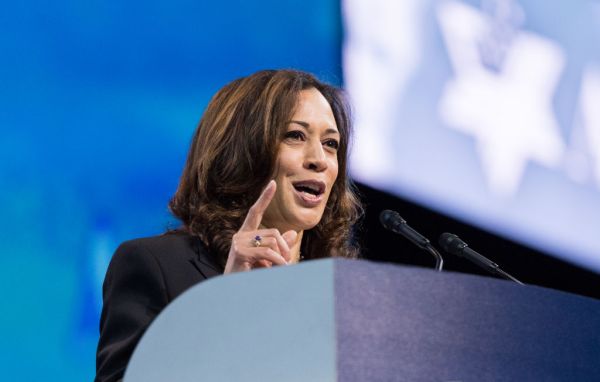Israeli Prime Minister Benjamin Netanyahu responded to nationwide protests and strikes that affected hospitals, universities, and air travel Monday by postponing the slate of controversial judicial reforms that triggered the chaos. But the recent unrest may be just the beginning of the country’s brewing crisis.
The fight over judicial overhaul was “tearing the country apart,” Netanyahu said in a televised address Monday as he announced the postponement. Yet he still vowed to pass it “in one form or another.”
“When there’s an option to avoid civil war through dialogue, I as prime minister take a time-out for dialogue,” he added.
Besides buying time, it’s unclear what Netanyahu plans to do to both assuage the protesters and the far-right factions driving the reform efforts. Regardless of whether Netanyahu’s able to strike a compromise and get the reform through in May as he announced Monday, the judicial saga has struck a major blow to his political career—and the precarious governing coalition he formed last year. The prime minister has staked his reputation on national security and the economy, both of which were undermined in recent days.
“This is a crisis deferred,” said Jonathan Schanzer, senior vice president for research at the Foundation for Defense of Democracies. “It’s definitely not settled yet.”
After months of demonstrations opposing the plan, unrest reached an apex on Sunday after Netanyahu sacked the country’s defense minister for opposing the reform. The ousted Yoav Gallant, a fellow member of Netanyahu’s right-wing Likud party, had called on parliament to suspend the legislation in a televised address Saturday over concerns that the “growing rift” in Israeli society posed “a clear, immediate, and tangible threat to the security of the state.”
Protesters flooded the streets within minutes of Gallant’s firing around 10 p.m. local time and stayed well into the night, with upward of 700,000 people reportedly turning out in Jerusalem, Tel Aviv, Haifa, and other cities across the country.
Turmoil continued into Monday, when the head of Israel’s national public worker union federation called for a nationwide general strike. The Israeli Medical Association staged walk-outs in hospitals, universities and schools closed their doors, and airline workers shut down flights in and out of Tel Aviv’s Ben-Gurion International Airport. Hundreds of Israeli Defense Force (IDF) reservists pledged to continue skipping training and urged others to join. Mayors and local officials began a hunger strike outside of the prime minister’s office in Jerusalem.
Israeli President Isaac Herzog pleaded with the prime minister to end the overhaul attempt “for the sake of the unity of the people of Israel,” but that proved easier said than done for Netanyahu, who retook office in December after he forged a fragile political coalition with his Likud party and far-right groups.
After Netanyahu privately signaled plans to pause judicial reform push on Monday morning, Itamar Ben-Gvir, leader of the far-right Otzma Yehudit or “Jewish Power” party, reportedly threatened to dissolve the governing coalition. Netanyahu eventually decided to table the reform until early May after negotiations with Ben-Gvir who, as national security minister, will reportedly be permitted to form a national guard under his control in exchange. Ben-Gvir had previously ordered police officers to use a “heavy hand” to deal with protesters who blocked roads, raising concerns that he’s preparing to meet the next wave of demonstrations with greater force.
The crisis sent Israel’s security establishment into a practical standstill over the weekend amid fear that walk-outs by IDF reservists would continue to spread. “There’s a sense that Israel is more vulnerable right now, not just because people are in the streets, and not just because roads are being shut down, but also because some reservists are ambivalent about showing up for duty,” said Schanzer. “This certainly could be viewed as an opportunity by Israel’s enemies.”
Iran’s first public comment on the protests last week proved as much. Foreign Ministry spokesperson Nasser Kanaani said the unrest demonstrated that Israel was “a rootless structure that will be toppled by the wind.”
Israel will eventually need to reckon with the issue at the heart of the crisis: what kind of power the courts should wield.
While the judicial reform plan’s proponents accused protesters of using mob rule to stall its passage, opponents say the government is trying to make sweeping, systemic changes without popular mandate. The governing coalition currently holds 64 of the Knesset’s 120 seats, and extremist lawmakers like Ben-Gvir have been the loudest in calling for reforming the judicial system.
But the far-right faction of Netanyahu’s coalition isn’t alone in worrying about judicial overstep. Israelis across the political spectrum think the Supreme Court has amassed too much power in its effort to rein in the Knesset. Because the country has only one legislative body and no written constitution, the judicial branch has increasingly asserted itself as a check on lawmakers’ power by shooting down legislation that runs counter to quasi-constitutional “basic laws.” Critics of the court’s trajectory say it’s taken on an increasingly activist role, promoting or derailing particular policies with an often ideological preference for the political left.
The proposed reform would, among other things, afford members of parliament greater influence over the committee responsible for appointing justices and make it much more difficult for those justices to nullify legislation.
The huge response to the proposal proved the outsize role courts have taken on in Israeli politics, supporters argue. “It’s simply unthinkable that they’re going to close the airport simply because of two judges on the court, if it weren’t for the fact that the court is actually the supreme power in Israel—more powerful than the prime minister, more powerful than the government,” said Eugene Kontorovich of the Kohelet Policy Forum, the right-wing think tank championing the reforms. “And nobody gives up absolute power easily.”
But critics of the proposal say the changes would create a majoritarian system capable of trampling minority rights unchecked—a particularly troubling prospect in a country rife with ethnic and religious divides. Netanyahu’s ongoing corruption trial also raises concerns that lawmakers would use the changes to shield the prime minister from legal scrutiny. The Knesset on Thursday passed a law making it more difficult to remove Netanyahu from office for actively backing the judicial reform given the conflict of interest.
Other opponents, including some who want to reform the judiciary, oppose pushing through transformative legislation with bare minimum support. As of Monday, just 61 members of the governing coalition—a simple majority—still backed the law.
“Opponents of this overhaul say that even those voters who supported some kind of reform to the judicial system did not expect it to be so fast, so intensive, so drastic, and with so little buy-in from the opposition,” Oren Kessler, a Tel Aviv-based political analyst, said in an interview. “And you can see it in the polls. If elections were to be held tomorrow, this coalition would not survive.”









Please note that we at The Dispatch hold ourselves, our work, and our commenters to a higher standard than other places on the internet. We welcome comments that foster genuine debate or discussion—including comments critical of us or our work—but responses that include ad hominem attacks on fellow Dispatch members or are intended to stoke fear and anger may be moderated.